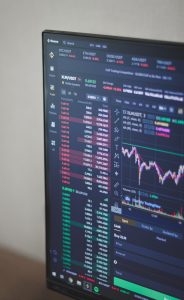As a forex trader, one of the most important things to understand is when you are required to pay taxes on your trades. Failure to do so can result in penalties and legal consequences. In this article, we will discuss when you have to pay taxes on forex trades and what factors can impact your tax liability.
First, it is important to understand that forex trading falls under the category of capital gains tax. This means that any profits you make from forex trading are considered capital gains and are thus subject to taxation. The amount of tax you owe will depend on several factors, including your total income, the amount of capital gains you have realized, and your tax bracket.
When it comes to forex trading, there are two types of capital gains that you need to be aware of: short-term and long-term. Short-term capital gains are those that are realized on trades that are held for less than one year. Long-term capital gains are those that are realized on trades that are held for more than one year. The tax rates for these two types of gains are different, with short-term gains being taxed at a higher rate.
To determine your tax liability on forex trades, you will need to calculate your net gain or loss. This is done by subtracting your total losses from your total gains. If your net gain is positive, you will owe taxes on that amount. If your net gain is negative, you may be able to claim those losses on your tax return.
One thing to keep in mind is that forex trading losses can be used to offset other capital gains you may have realized in the same tax year. For example, if you have realized a net gain of $10,000 from forex trading but also have realized a net loss of $5,000 from stock trading, you can use the losses from your stock trading to offset your gains from forex trading. This can help reduce your overall tax liability.
Another factor that can impact your tax liability on forex trades is where you are located. Different countries have different tax laws when it comes to forex trading. In the United States, for example, forex traders are required to file taxes on their capital gains at the end of the year. Other countries may have different requirements or tax rates.
It is also important to keep accurate records of all your forex trades. This includes the date, time, and price of each trade, as well as any fees or commissions paid. These records will be important when it comes time to calculate your net gain or loss and file your taxes.
In summary, forex traders are required to pay taxes on their capital gains. The tax rates will depend on several factors, including the type of gain (short-term or long-term), your total income, and your location. Keeping accurate records of all your trades will be important when it comes time to file your taxes. If you are unsure about your tax liability or have questions about how to file your taxes, it is recommended that you consult with a tax professional.





